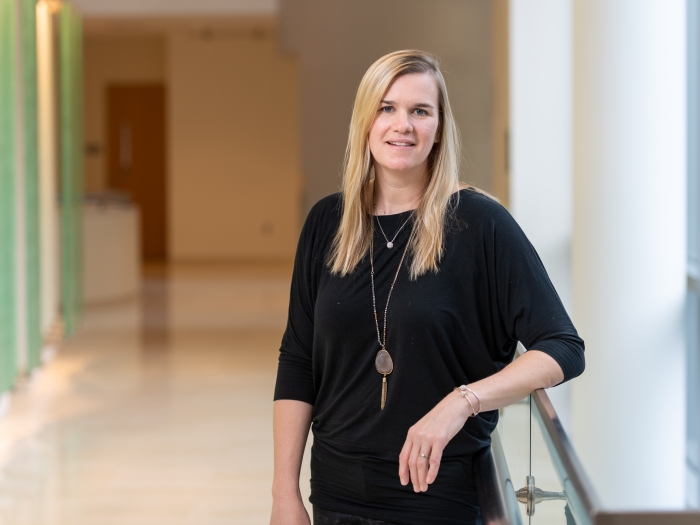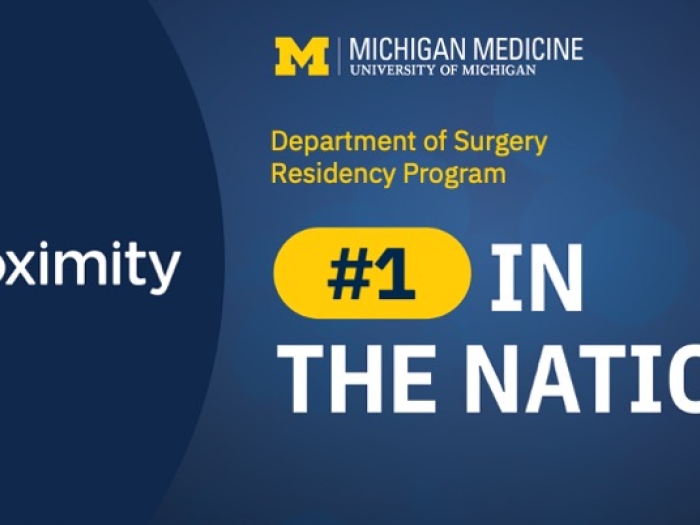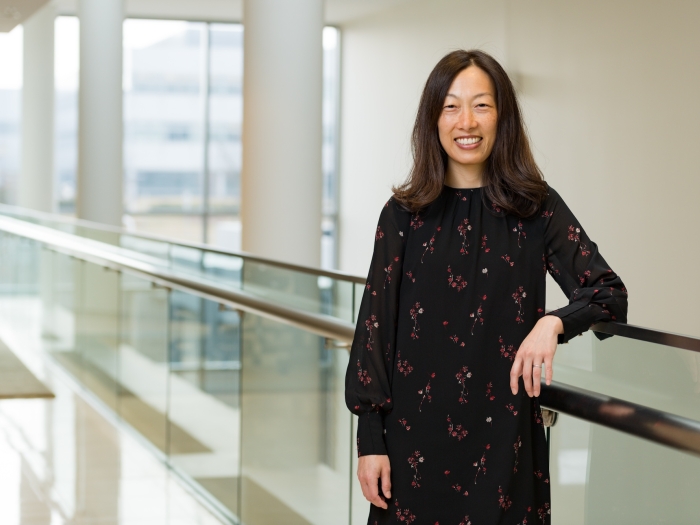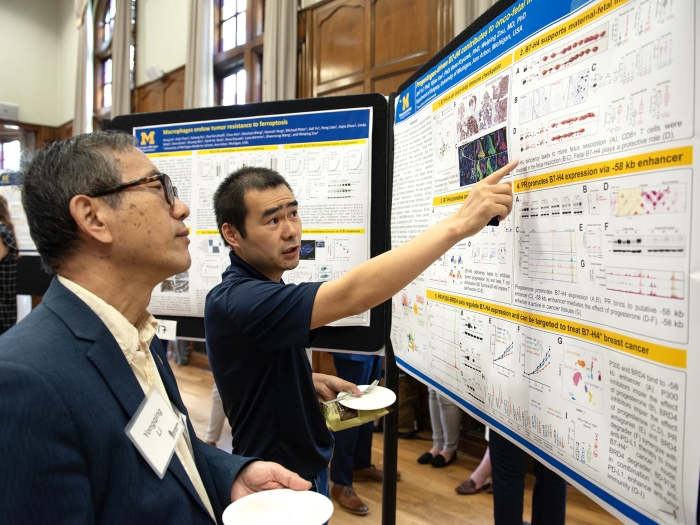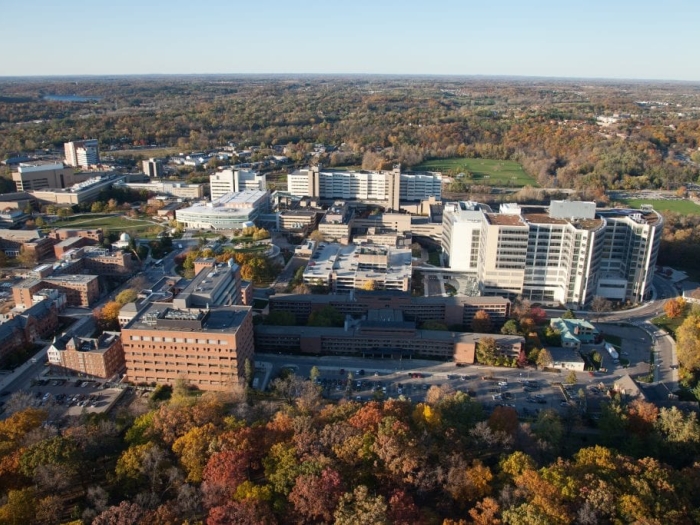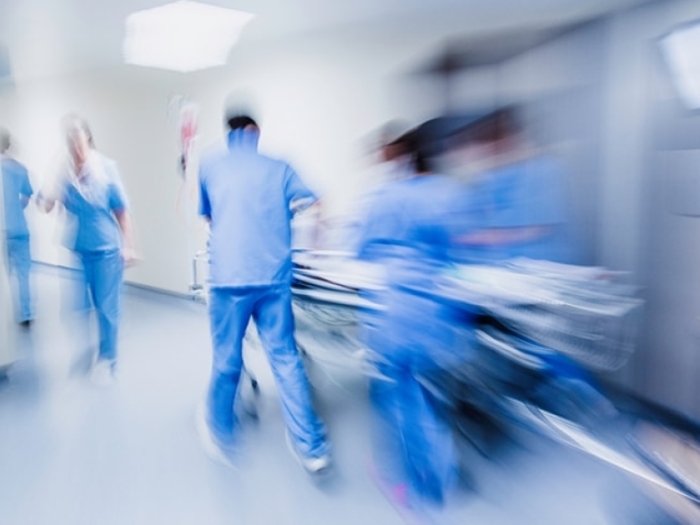
Clinical training at U-M Medical School Section of Vascular Surgery delivers a rare depth and breadth in the specialty, combined with mentored experience in a world-class vascular disease research program.
You’ll find it all here: case volume, responsive and internationally recognized faculty leaders, and academic opportunities in all aspects of vascular surgery practice and discovery.
As a vascular surgery trainee at the University of Michigan, you can expect:
- A dynamic cohort: Our programs attract top candidates, which means you’ll benefit from the energy, experience, and camaraderie of your accomplished peers. At the same time, our culture is collegial and supportive, with formal mentoring experiences designed to provide guidance.
- A diverse portfolio of vascular surgery expertise: Our faculty are recognized leaders in all aspects of the discipline, from common vascular procedures to specialized practices such as complex cerebrovascular reconstructions, advanced open reconstruction of the thoracic and abdominal aorta and visceral branches, advanced endovascular procedures (including f-EVAR and branched iliac devices, SAFARI and other peripheral interventions), thoracic outlet syndrome decompressions, and pediatric vascular procedures encompassing advanced aortic reconstruction for coarctation, renal and mesenteric reconstructions for occlusive and aneurysmal disease. That means trainees also benefit from access to a uniquely diverse clinical practice and technical expertise.
- A robust research enterprise: Integrated vascular residents benefit from two years of protected time between the third and fourth clinical years to pursue academic development and research interests through our highly productive and federally funded labs. Opportunities run the gamut from basic science to translational to health services research investigating all aspects of vascular surgery, including but not exclusive of: cerebrovascular disorders, aortic aneurysm pathogenesis, ischemic reperfusion injuries, venous thrombosis resolution and vascular remodeling, computational flow analysis, immunology of wound healing, and new endovascular techniques.
Our training programs begin at the undergraduate level and extend to advanced training for vascular surgery fellows.
For undergraduates passionate about medicine and biomedical research, we offer learning opportunities through the U-M Undergraduate Research Opportunity Program (UROP), both for course credit or for lab experience.
Through the support of the Esperance Family Foundation and the Frankel Cardiovascular Center, we also provide a Summer Undergraduate Fellowship aimed at giving undergraduate students with an intensive summer research lab experience.
For medical students, we organize a core lecture series on vascular surgery, monthly case presentations, and vascular surgery reviews for oral board exams. Through the Department of Surgery Academic Surgeon Development Program (SCRUBS), we also teach an intro to basic surgical techniques Also through the medical school, our faculty routinely mentor summer SBRP (Summer Biomedical Research Program) students.
We offer a 5-year Integrated Vascular Surgery Residency Program (with an additional two years of protected academic development time), and a 2-year Vascular Surgery Fellowship Program. Residents and fellows will gain experience and skill in all aspects of academic vascular surgery, benefiting from our section’s broad expertise.
The Michigan Promise aims to empower faculty members and residents in the Department of Surgery to achieve professional success. We support initiatives connected to environment, recruitment, leadership, achievement, innovation and outreach.
Feel at home in Michigan. Explore what it’s like to live, learn and grow in Ann Arbor among a diverse and supportive network of leaders in surgery.
